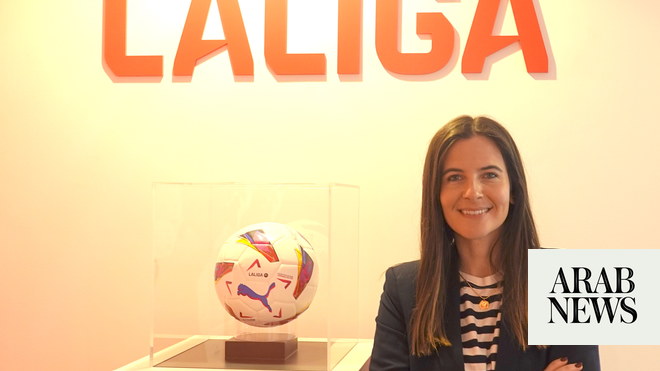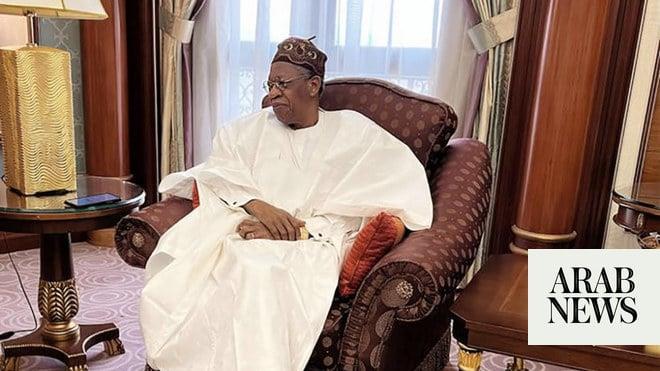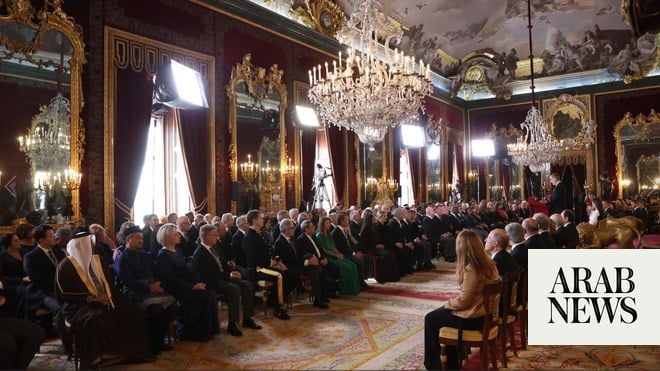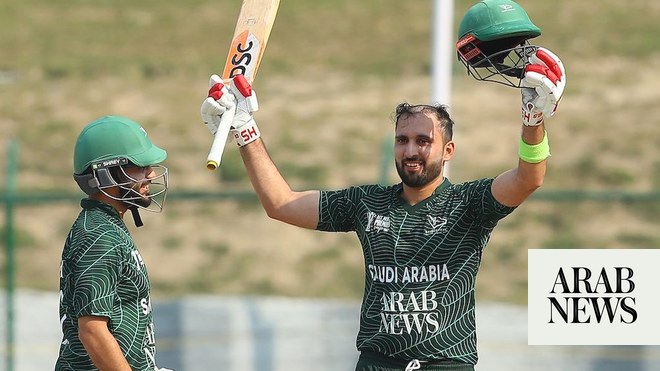
Regional CEO Sunil Kaushal explains the global bank’s strategy as it expands in the Kingdom
Standard Chartered’s relationship with Saudi Arabia is getting closer by the month, and Sunil Kaushal, the bank’s regional CEO for Africa and the Middle East, has been instrumental in driving the bank’s new affinity with the Kingdom.
“It (Saudi Arabia) is a large, attractive market, and one that we have always been interested in,” Kaushal told Arab News.
Earlier this month, Standard Chartered (SC) announced the appointment of a new CEO for Saudi Arabia; experienced banker, Yazaid Al-Salloom, with plans to open a full office in Riyadh, probably some time in 2021.
Last year SC won a full banking license from the Saudi Arabian Monetary Authority, enabling it to offer the full range of services in the Kingdom, upgrading the license from the Capital Markets Authority under which it had been operating previously.
The new status allows SC to add to the investment banking activities it previously ran, giving it capacity to offer commercial banking and deposit-taking in the Kingdom. It could in theory open a retail branch system there, but that is not a top priority for Kaushal, especially in the currently changing banking sector in the Kingdom, where some big mergers have been completed and more are thought to be under consideration.
“Retail is a segment where you require scale and it’s a slow burn, so from our point of view we see ourselves as a bridge to accessing capital from overseas into Saudi,” he said.
The “bridge” concept sees SC acting as a conduit for two-way capital flows between Saudi Arabia and the rest of the world.
“It is about facilitating trade flows in and out of Saudi, and also capital flows from Saudi into the outside world, because Saudi is looking to diversify. We already played a role in a couple of those transactions, so I think from our point of view it was an area where we wanted to have expertise and have a focused approach for our customers who are already there,” Kaushal said.
“We need to focus on our areas of expertise, which include project finance, capital markets, trade finance, cash management with customers, local customers who have already existing large operations in Saudi.
“We also deal with regional customers who are in Saudi, like large groups from the UAE and other GCC countries who are already in Saudi. So, we are looking at really supporting them and providing a continuum in services which is quite seamless. That’s where we believe we can get a real bang for the buck,” he said.
Kaushal has been involved in banking in the region and in Asia for the past 30 years, in a number of different institutions, but took over the top regional job for SC in 2017. He has enough expertise to deliver a straightforward assessment of the Kingdom’s economic and financial prospects in the age of the pandemic, when it has been affected by economic dislocation because of lockdowns and the budgetary effects of the fall in oil prices.
“From our perspective, getting into a market like Saudi is about taking a longer-term view, and what is really important are the drivers of the economy. We believe that the energy resources are not suddenly going out of fashion. Yes, you could have more renewables, more climate-friendly fuels. But there is going to be a core part of the economy that is relying on oil and gas,” he said.
BIO
BORN: India 1965.
EDUCATION
Bachelor of commerce, Bombay University.
Qualified accountant, Institute of Chartered Accountants, India.
CAREER
Various roles with Standard Chartered in Singapore.
CEO, Standard Chartered Taiwan.
Head of Corporate Banking, UAE.
CEO, Africa and Middle East, Standard Chartered.
“We are number one for tech capital markets in the region, whether you look at conventional or Islamic — and not many international banks have the expertise to provide you both. So we can access capital for the sovereigns and for the corporates.
“We also believe that the Saudi economy is opening up and will encourage private sector participation, which will mean our global and regional customers will have the opportunity to participate in sectors like health, education, entertainment, infrastructure,” he said.
These sectors were largely the domain of public sector funding, but that is changing as they open up to private sector investment under the Vision 2030 strategy, Kaushal explained.
The other job SC can do is to help Saudi investors to look outside the Kingdom. The Public Investment Fund’s multibillion-dollar forays into Western equity markets have caught the headlines, but Kaushal believes there will be a lot more outward investment by expansionist Saudi investors.
“Saudi entities now want to diversify by going into markets overseas; so they’re going into markets in the region, they’re going into markets in South Asia, they’re going into markets in Southeast Asia and, of course, the Western world and in China. Not many banks have a presence across Asia, South Asia, the Middle East and Africa,” he said.
He believes that the investment momentum for the Kingdom is increasingly eastwards, especially in the oil and petrochemicals market, where Saudi Arabia has been involved in some high-profile deals in refineries and petrochemical plants.
SC has already been involved in the power sector in the Kingdom, as part of the banking team that helped Saudi Aramco to raise $6 billion for a joint venture with ACWA Power and Air Products in the Red Sea port of Jazan.
Kaushal also expects to be actively involved in the capital-raising program that the Kingdom will have to employ this year to bridge the gap in its public finances left by the fall in oil revenue. SC estimates this could be as much as $75 billion, to be raised on international as well a domestic capital markets.
He estimated the split between domestic and global capital raising was roughly 60-40 percent-inclined toward domestic lenders.
SC has taken part in some of the big capital raising exercises already completed this year, as joint global co-ordinator and book runner on two consecutive sovereign debt issuances totaling $7.5 billion, as well as on multibillion-dollar issuances for the banking sector.
“Local domestic markets are very liquid, so I think the split will be roughly 60 percent of the total raised locally and the balance on international markets. It’s a good opportunity for the local banks, and they have been doing that recently — deploying surplus liquidity into government securities,” he said.
Kaushal also believes that there are big opportunities in all aspects of the privatization program that is going ahead despite the economic uncertainties of the pandemic.
“We see private sector participation and capital coming into infrastructure, education, health and entertainment. Saudi was one of the fastest-growing entertainment markets in the world before COVID hit, and once that settles down, I really think that the sector will open again. And you’ve got the giga projects that are opening up in the Kingdom and, of course, Neom. So we believe that the pipeline remains very robust,” he said.
“Technology is going to be another one which is going to pick up speed, and you are going to see a lot of entrepreneurial activity as well as investments coming in that sector,” he said.
Some analysts have pointed to a recent rise in non-performing loans in the region as a warning sign for the banking system and a re-emergece of debt problems across all regional economies.
“As with the Western banks and, as with the banking sector globally, the last couple weeks of March were challenging, but if you look at the way the central banks responded I think liquidity was ample, and if you look at the capital levels they are significantly higher than the regulatory requirement,” Kaushal said.
In the case of Dubai and the UAE, where some experts have highlighted the need for big debt repayments in coming years, he appears to be comfortable. “The UAE and Dubai have been very conservative. Yes there are net servicing requirements that will come along the way, but there are very good lessons learnt from the 2008 crisis. And I think Dubai is equipped to tide over the financing requirements, and they are thinking far ahead,” he said.
A good example of the UAE’s innovative attitude toward capital raising came with the recent move by the Abu Dhabi National Oil Company to spin off its gas pipeline to a consortium of investors, on which SC advised.
But for the next few months, Saudi Arabia will continue to be Kaushal’s main focus in the region. He had planned to open the new Riyadh office with between 30 and 40 staff to coincide with the Future Investment Initiative forum in October, but the travel restrictions of the pandemic put those plans on hold for a while. A formal opening will probably take place a few months after travel is eased between the UAE and the Kingdom.
“All I would say is that we are extremely excited about the Saudi market. There is a huge amount of interest from our clients and from our customers. It fills in a gap that we have in our network proposition and that is significant for us.”












